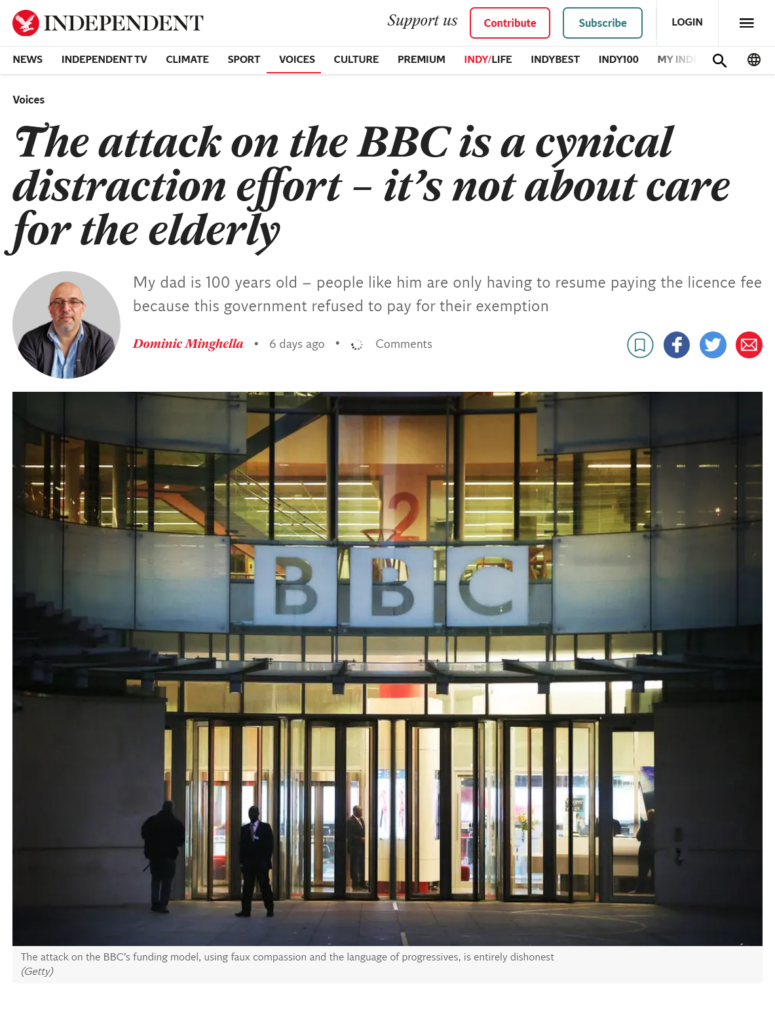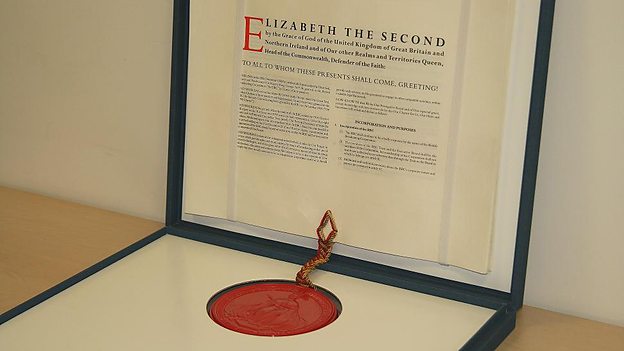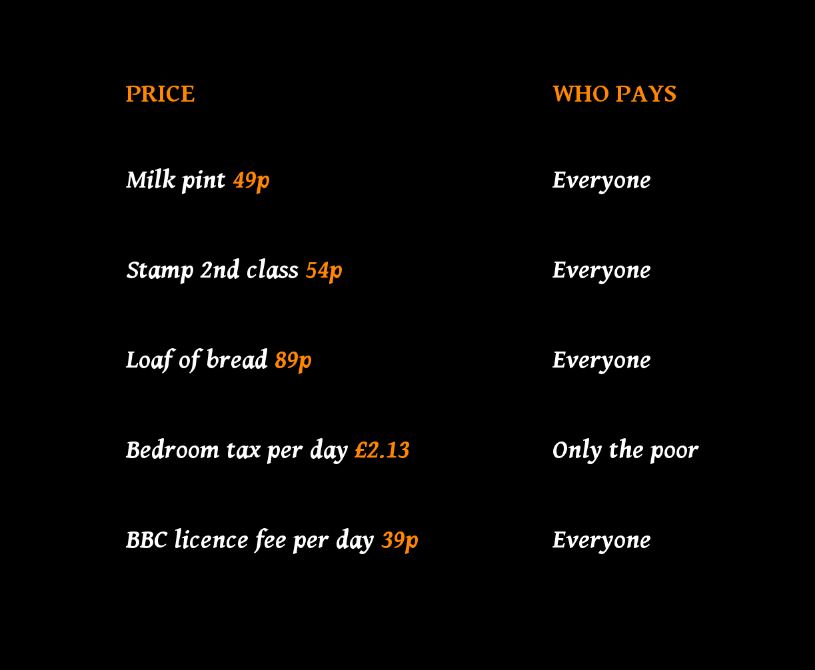
Thank you to the Independent for encouraging me to write this article.
In case it goes offline, the original text is below.
My Dad, Edward, is 100 years old. He started paying the BBC licence fee in circa 1945, when he was demobbed from the Royal Army Medical Corps. Now, after this government stopped funding the exemption for over-75s, he is paying it once again. And what he probably doesn’t realise, is that he’s in a war again, too.

The war this time is a culture war. We know, of course, that it has been reignited this weekend as part of “Operation Save Big Dog” to try to distract critics of Boris Johnson’s shameful Downing Street tenure on the one hand, and to throw juicy bones to the Tory right on the other.
This culture war strategy is nothing new. While we react to its agenda-setting horrific pronouncements, this government has been quietly pushing through legislation of which the public is substantially unaware – the Policing Bill, the NHS & Care Bill, the Elections Bill, to name just a few. Our democracy and rights are under coordinated – and largely unnoticed – attack. Such are the benefits to dishonest autocrats of stoking culture wars.
So let’s be clear. We are only talking about BBC funding today because the liar in Downing Street is on the ropes. I am only writing this article, and you are only reading it, because this is what he wants us to do. If that is a sobering thought, we can at least console ourselves with the thought that we are sober, which, evidently, is more than can reliably be said for our boozed-up overlords in No 10.
But make no mistake. The attack on the BBC may be part of a culture war, and it may be part of Operation Save Big Dog (or is that Big Dong? No-one is sure), but it is still an all-out attack.
And, as attacks go, it is cunning and low. The Culture Secretary, Nadine Dorries, tweeted, “This licence fee announcement will be the last. The days of the elderly being threatened with prison sentences and bailiffs knocking on doors, are over.”
Since people like my Dad are only having to resume paying the licence fee because this government refused to pay for their exemption, it is breathtakingly rich of Dorries to present herself as their champion. If any elderly folk are threatened with prison, that will be a direct result of her government’s mean-spirited choice.
This government has no regard for the elderly. We saw how they treated them in the pandemic, with their so-called “protective ring” and their encouragement of Do Not Resuscitate arrangements. We see how they treat them now, leaving them at the mercy of the energy market, equipped only with the lowest state pension of any wealthy economy. For many elderly folk, the box in the corner – and that mostly means the BBC – is a very significant comfort. Now the government wants, effectively, to switch it off.
If the professed care for the elderly is patently disingenuous, what of the criticism that the licence fee is “regressive”? Clearly, insofar as the price stays the same regardless of a person’s income, it is regressive. But then so is the price of a pint of milk; so is the price of a loaf of bread; so is the price of a newspaper. They are all easier on the pockets of the rich than they are on the poor. They’re all regressive.
Yet you won’t hear many tender-hearted Tories saying the price of milk is regressive. It would be meaningless. The price of milk is just the price of milk.
What’s critical is whether the pint of milk is fairly priced. It’s 55p these days, by the way. A second class stamp will set you back 66p. The price of the entire BBC TV, radio and online output is 44p per day.
You can call that regressive; I call it great value.
Branding the licence fee “regressive” is clever propaganda in the culture war, because it makes it sound officially, intellectually, particularly unfair. And it deploys the very language that defenders of the poor use when they complain about things like VAT hikes. If taxes must be raised, most of us prefer the “progressive” variety – those which reflect income. Using the language of compassion to outmanoeuvre and confuse opposition is a particular skill of contemporary Conservatism, and it predates Johnson. Cameron and Osborne were masters of it.
It’s a form of gaslighting really, and, like all gaslighting, it requires continual effort on the part of the victim to keep a clear head. In this case, clear-headedness means understanding the big picture – which, today, is the cynical effort to keep Big Dong standing, if you’ll pardon the grotesque imagery.
Clear-headedness means understanding that the attack on the BBC’s funding model using faux compassion and the language of progressives is entirely dishonest. This government’s record, when it comes to the treatment of the poor and the elderly, speaks for its unconscionable self.
Clear-headedness means understanding that a government with much to hide will always detest being held to account by journalists serving the public interest, and therefore will do all it can to infiltrate and undermine a public service broadcaster like the BBC. The interests of the people, particularly the vulnerable, are best served by well-resourced, independent public service journalism; cutting off the BBC’s legs only allows the ill-intentioned to run amok.
At 100 and still chipping in, my Dad has probably paid more BBC licence fees than pretty much anyone alive in the UK. After all those years of contributions, I reckon it’s his BBC. Johnson’s desperate, dishonest cultural vandals must not be allowed to take it away. Big Dong must not be saved at the expense of the BBC; instead, his demise should mark the start of the long road to restoring decency in this country – and, with it, the return of the exemption for the over-75s. Meanwhile, if the Tories are genuinely concerned about the licence fee being regressive, perhaps they would support the rich paying more?


